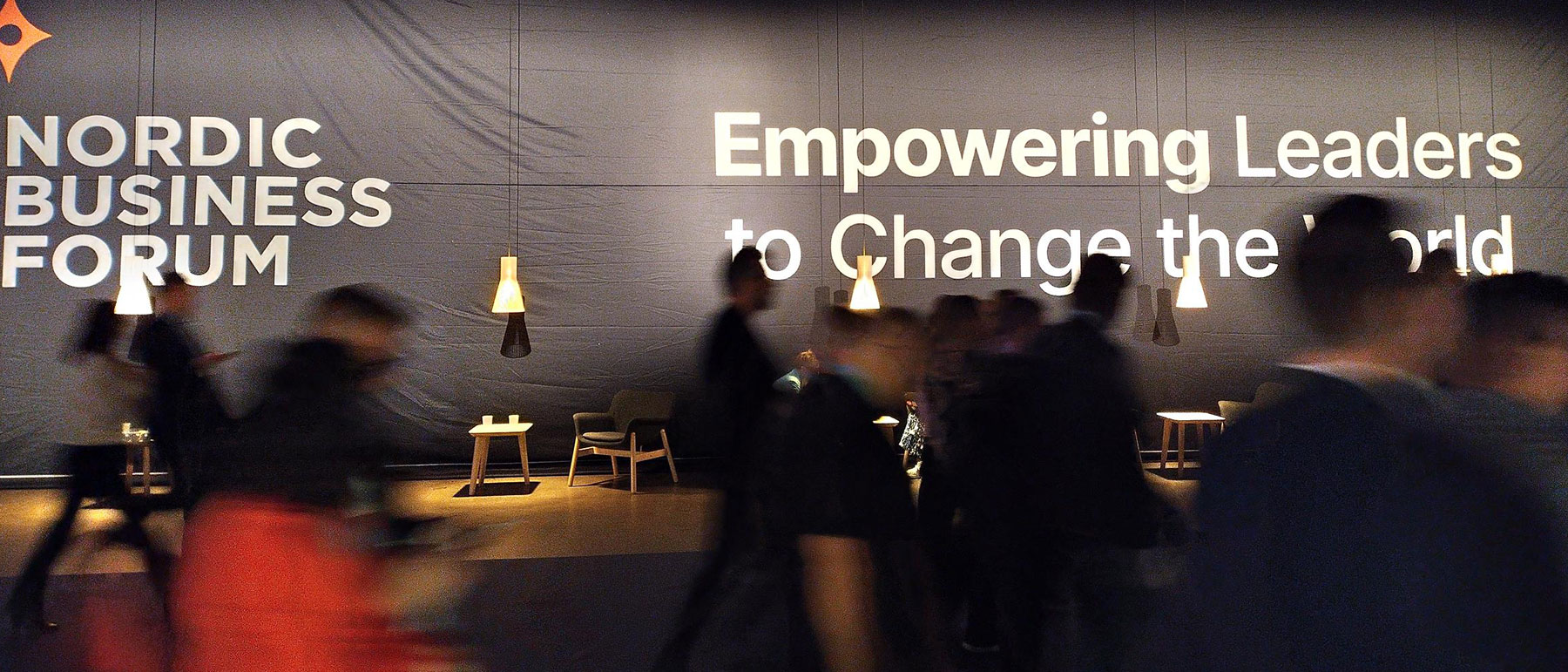Helsinki as Proof of Concept: Two Days, One Living Ecosystem
The Nordic Business Forum in Helsinki was much more than an event. It became the moment where I could truly put my methodology to the test.
Walk your talk: the ultimate test
With Add Business, I step in as a co-pilot. With Companyonwise, I always start from DNA Discovery — the process of uncovering what truly drives organizations. I apply that same logic to myself. The connection between Brussels and Tallinn is no coincidence; it’s a deliberate strategy — to build a living ecosystem that helps Nordic and Baltic companies enter Belgium, starting from their own DNA.
But this had to be more than just a strong narrative. It had to be proven — in practice, at a single event. I had two days. No team, no luxury of preparation. Only the Brella app — a matchmaking platform that connects people based on shared profiles and interests — and one belief: if this methodology worked, I would be able to assemble a functioning ecosystem in 48 hours.
Growth, innovation, and digitalisation: the driving force of the ecosystem
During the Nordic Business Forum, a mosaic of connections came together in just two days. The network included professionals from software development, leadership, talent acquisition, legal, sales, branding, and education. Names like Timo Kempanen (Growth Agency), Kai Lempinen (Appmore), Lasse Kukkonen (Leadership Coaching), Lise-Lotte Laane (Sorainen), Juha Qvick (SalesFrame), and Mari-Liis Ahven (Optimist Public) represented more than business functions — they became the building blocks of an ecosystem connecting technology, people, and markets.
The result was not a loose collection of conversations, but a coherent network of fourteen complementary experts — each contributing their own strength: growth, innovation, digitalisation, human development, branding, legal expertise, and academic insight. Together, they form the essence of what NBB HUB stands for: a multidisciplinary, international alliance where knowledge, network, and practice reinforce one another to create sustainable market access.

From markets to ecosystems: the bigger picture
When I founded NBB HUB, I — like many others — approached it through the lens of markets, data, and entry strategies: approaching companies, creating analyses, mapping out competition. Important, but incomplete. Modern businesses no longer operate in isolated markets, but in dynamic networks of collaboration and co-creation. This is even truer once those networks cross borders. Belgium is the perfect example: a country that seems complex at first glance, but whose diversity makes it a natural hub for European expansion.
Research confirms that business ecosystems — networks of organizations that cooperate and compete in the delivery of goods and services — are now critical for innovation, sustainability, and competitiveness (Espina-Romero et al., 2023).
But an ecosystem is much broader than just events. It includes universities and business schools (such as Vlerick, Solvay, and Antwerp Management School) that nurture talent and share knowledge; sector federations (like Agoria, Fevia, and essenscia) that represent their industries; and membership organizations (such as Voka and BECI) that unite thousands of companies. The art of internationalisation lies in knowing where these worlds intersect — and how to gain strategic access to them.
The human factor: DNA as a compass
This vision took shape for me last year when I met Lars-Erik Hion and Jana Kukk of Rethink on the same stage. Together, we mapped their organizational DNA — their authentic simplicity, their strength. That DNA became the foundation of their growth. Their story confirmed what I intuitively already knew: success in a new market doesn’t begin with data or strategy, but with identity. Companies that land successfully don’t come merely to find clients; they come to find partners who resonate with their DNA. That’s how sustainable ecosystems are built — from the inside out.
Theory becomes practice
The beauty of the NBB HUB narrative is that it is not based on theory to be tested later, but on real-time evidence. Helsinki became the proof of concept. I preach ecosystem thinking, I start from DNA Discovery, and I offer co-pilot guidance — and in Helsinki, I demonstrated that it works. In just 48 hours, I built a living ecosystem: fourteen professionals, six sectors, three countries. No spreadsheets, no reports — just practice that worked.
NBB HUB doesn’t operate from a distance but through proximity. Ecosystems are not static structures — they are living organisms. They grow, shift, and adapt. Their power lies in connection — exactly what Helsinki revealed.
References
- BCG Henderson Institute. Building Trust in Business Ecosystems. Boston Consulting Group, 15 September 2022.
- Espina-Romero, Laura C., et al. 7 Topics That Business Ecosystems Navigate: Assessment of Scientific Activity. Frontiers in Environmental Science 11 (2023).
- Rifa’i, A., Wibowo, A., & Kurniawan, A. Three Decades of Research in the Field of Business Ecosystem: A Bibliometric and Content Analysis. Cogent Business & Management 10, no. 2 (2023).
Ready to land in Belgium?
Discover how your company can land smoothly in Belgium — with a co-pilot who knows the terrain, the networks, and the fastest route to success.

